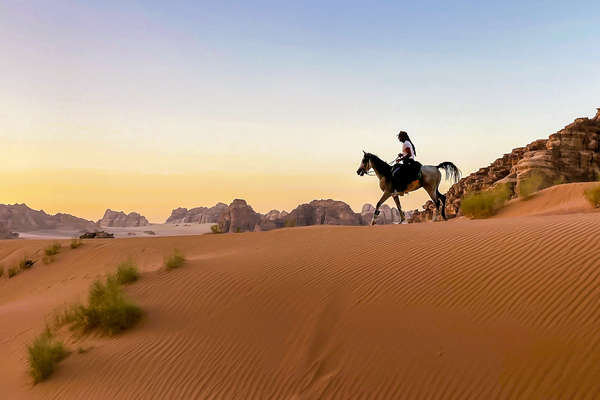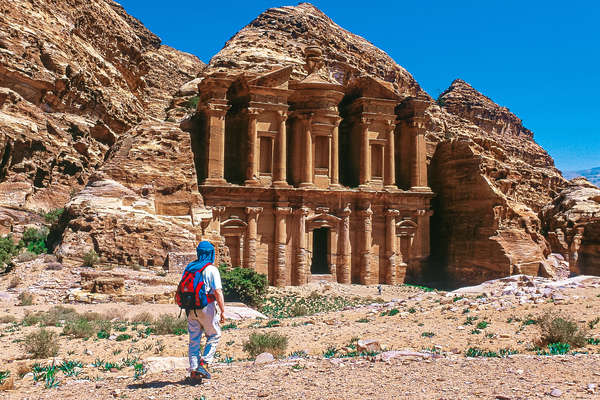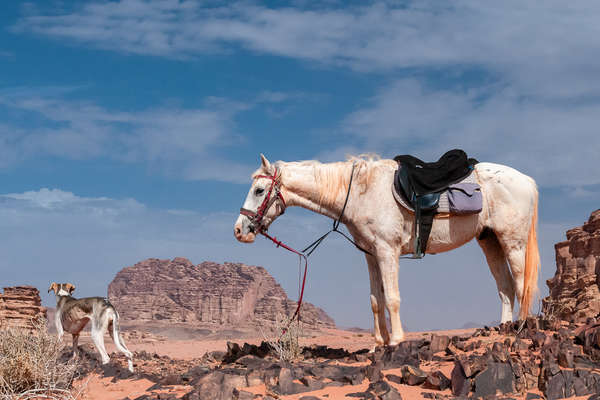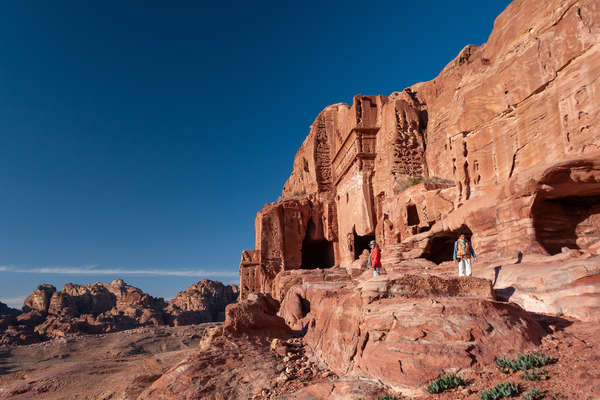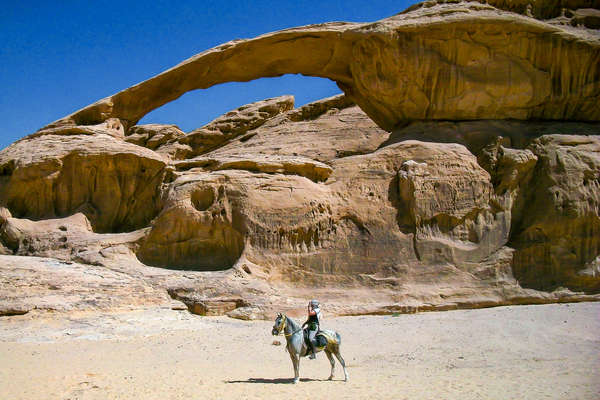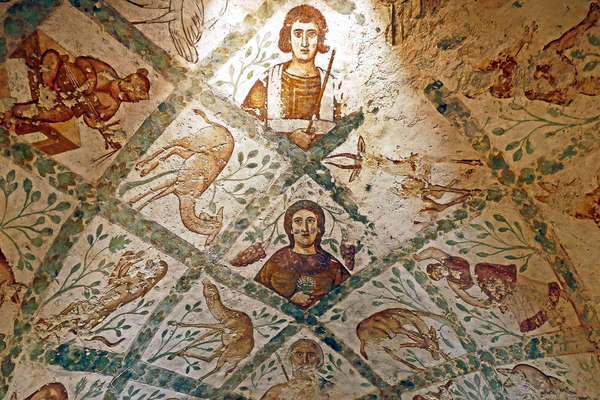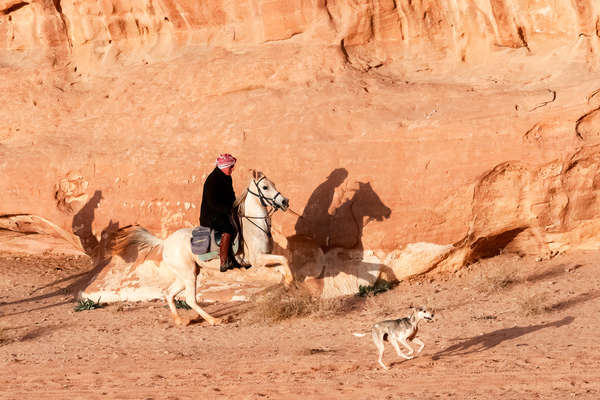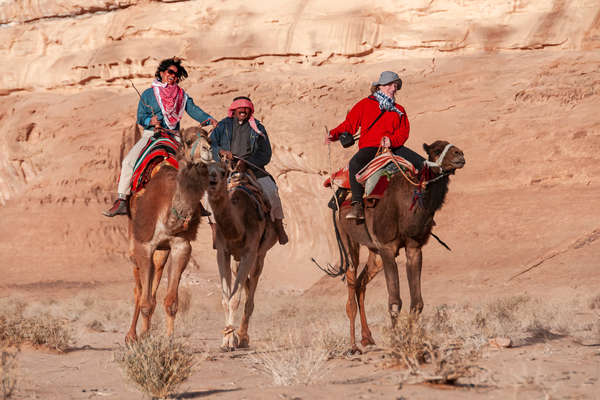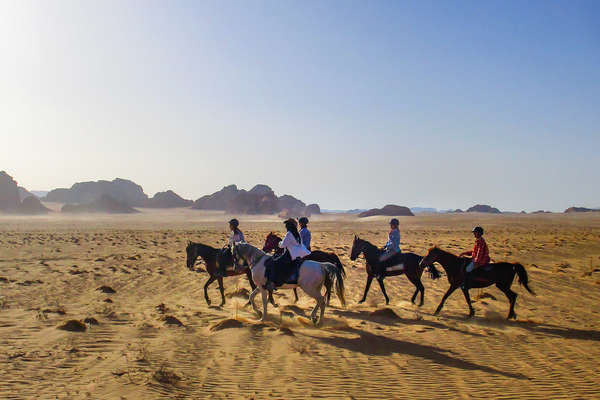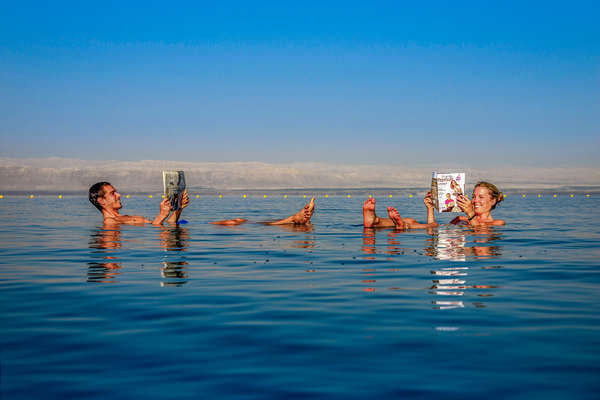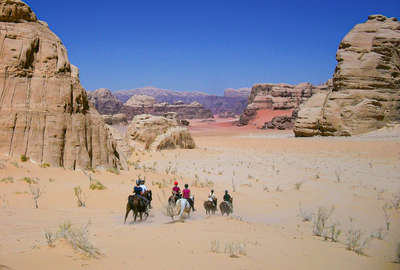
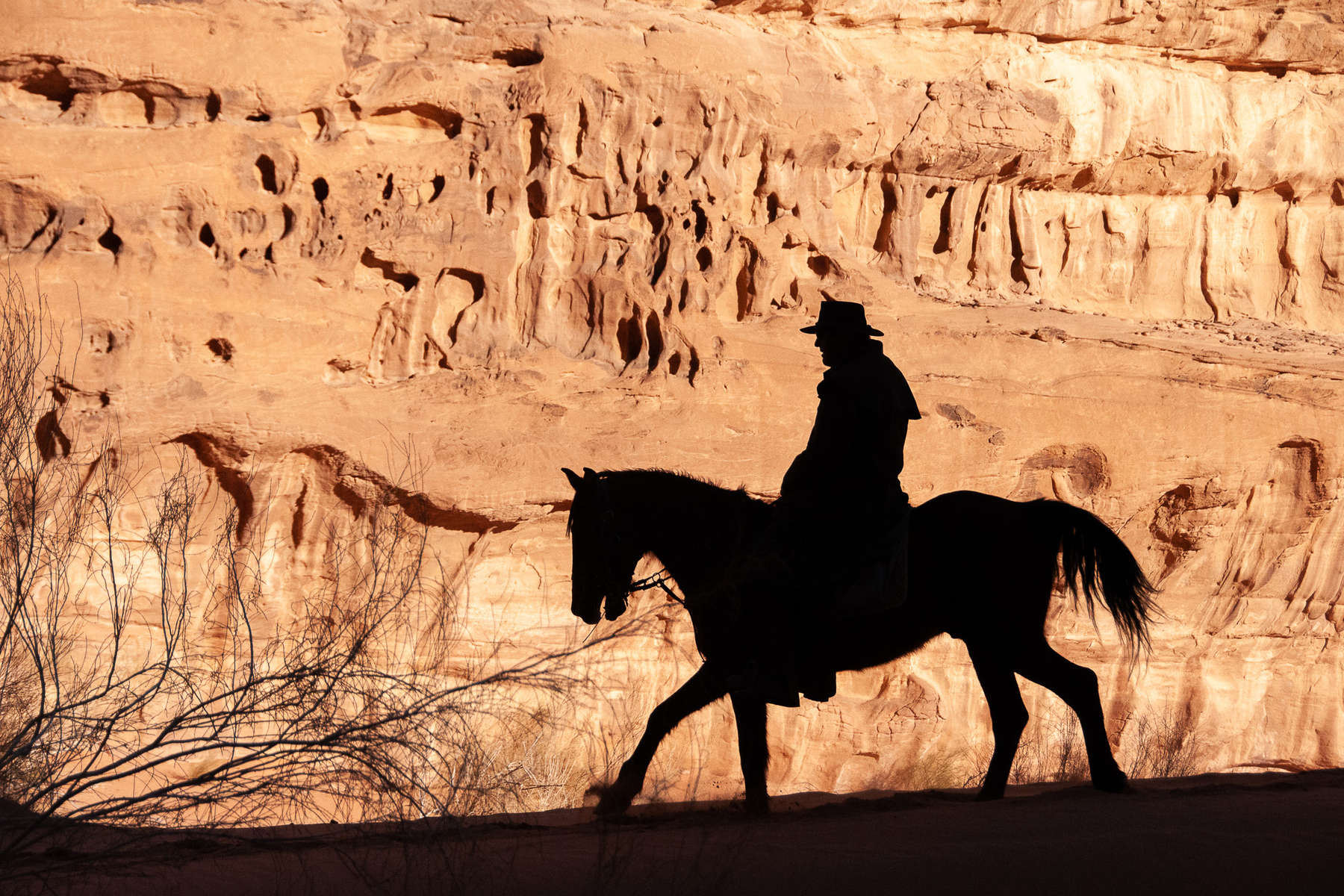
From the horse’s mouth
All trips

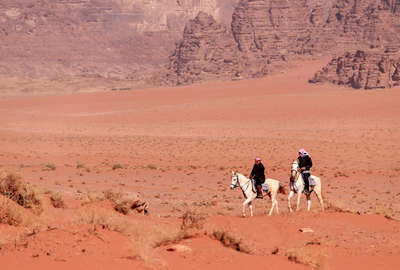
Wadi Rum trails (with Dead Sea extension)
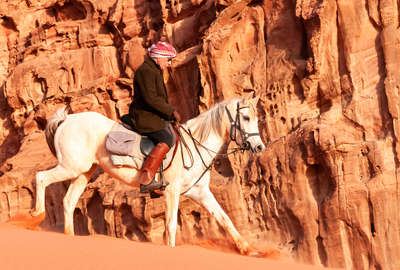
Wadi Rum trails
Visa & Health
Formalities
Addresses of consulates
- Ambassade de Jordanie80, bd Maurice Barrès,92200 Neuilly-sur-SeineTél. : 01-55-62-00-00Fax : 01-55-62-00-06amjo.paris@wanadoo.fr
- Ambassade de JordanieAvenue Franklin Roosevelt 1041050 BruxellesTél. : +32 (0) 2 640 77 55Fax : +32 (0) 2 640 27 96jordan.embassy@skynet.be
- Ambassade de JordanieChancellerieBelpstrasse 113007 BerneTél. : 031/384 04 04Fax : 031/384 04 05info@jordanembassy.ch
- Ambassade à l'étranger38 Al-Mutanabbi Street,Jabal Amman P.O. Box 534811183 AmmanTél. : +962 (6) 46 04 630Fax : +962 (6) 46 04 638
Health
Insurance
Voltage
Budget and money
Telephone and jetlag
Country information
Country ID
Socio-economical data
History
Geography
People, culture and traditions
Choosing the right riding holiday
Choosing the right riding holiday
"Lawrence of Arabia" refers to the British soldier T.E.Lawrence who wrote the autobiographical book Seven Pillars of Wisdom whilst serving as a liason officer with rebel forces during the Arab Revolt against the Ottoman Turks of 1916-1918.
Lawrence was based in the Wadi Rum as a member of the British forces and with the support of Emir Faisal and his tribesmen, carried out attacks on the Ottoman forces from Aqaba in the south to Damascus in the north. Many sites in the Wadi Rum have been named after him and the famous rock formations near the entrance are now known as the Seven Pillars.
The title "Seven Pillars of Wisdom" actually comes from the Book of Proverbs and Lawrence had intended to write a book about seven great cities of the Middle East, but when war broke out he liked the name so much that he kept it for his autobiography.
Our trail ride in Jordan visits many of the sites attributed to Lawrence: Lawrence's house, Lawrence's spring and the Seven Pillars being some of them.

